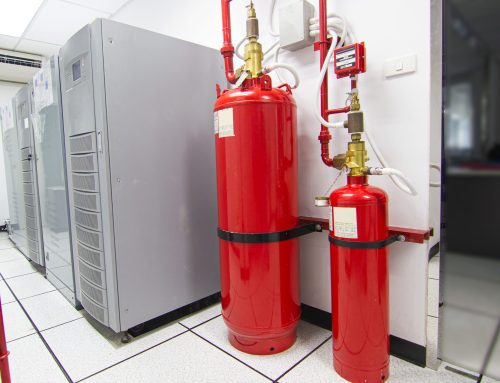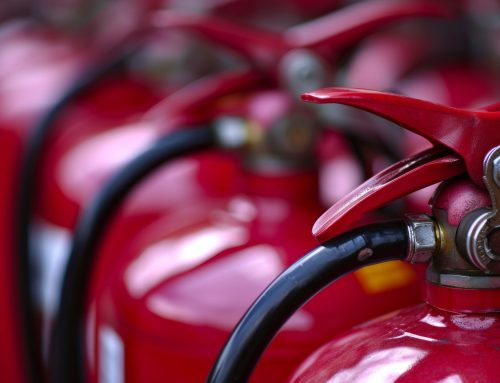Fire protection is critical for Georgia-based businesses, especially those housing sensitive equipment, data, or valuable inventory. A clean agent inspection report provides detailed insights into the health and functionality of your clean agent fire suppression system, ensuring it’s ready to protect your business in the event of a fire. Understanding this report is essential for compliance with fire safety regulations and for safeguarding your assets.
What is a Clean Agent System?
Clean agent fire suppression systems use environmentally friendly, non-conductive gaseous agents to extinguish fires without damaging equipment or leaving residue. They are commonly used in server rooms, data centers, and high-value asset storage areas. Regular inspections ensure these systems meet the standards set by the National Fire Protection Association (NFPA) and Georgia fire safety regulations.
Key Sections of a Clean Agent Inspection Report
A clean agent inspection report is divided into several sections, each addressing critical aspects of your system. Here’s what to look for:
- General System Overview
This section describes the system type, agent used (e.g., FM-200, Novec 1230), and its capacity. It also includes the last inspection date and any prior maintenance records. Ensure the information matches your building’s fire protection needs and that no discrepancies exist.
- Inspection Results
The results evaluate key components of your clean agent system:
- Agent storage and distribution: Confirms the agent is at the correct pressure and volume, with no leaks or obstructions in the piping system.
- Detection devices: Verifies that smoke or heat detectors are operational and capable of triggering the system.
- Control panel: Tests the control unit’s response to simulated fire conditions, ensuring it activates the suppression system and alarms correctly.
- Nozzles and discharge points: Checks for blockages, alignment, and functionality.
Inspectors may label each component as “compliant,” “requires maintenance,” or “non-compliant.” Pay close attention to any non-compliant items, as these must be addressed immediately to meet Georgia fire safety codes.
- Deficiencies and Recommendations
If the inspection identifies deficiencies, this section will outline them in detail. Common issues include low agent pressure, damaged detectors, or malfunctioning alarms. Recommendations will suggest repairs, replacements, or recalibrations. Prioritize resolving any deficiencies marked as “critical” to ensure the system’s reliability.
- Testing Results
Functional tests, such as discharge tests or detector response checks, are documented here. The results confirm whether the system meets NFPA standards and performs as expected during simulated fire conditions.
- Certification of Compliance
The final section indicates whether your system complies with NFPA 2001 and Georgia fire safety requirements. A passing certification ensures your system is safe and operational. If the system doesn’t pass, the report will explain the reasons and provide next steps for compliance.
Taking Action Based on Your Clean Agent Inspection Report
After reviewing your clean agent inspection report, it’s essential to take immediate action to address any deficiencies. Here are a few steps to follow:
- Work with certified technicians: Partner with a licensed fire protection company in Georgia to resolve issues and conduct follow-up inspections.
- Document repairs: Keep detailed records of maintenance and repairs for future audits and inspections.
- Schedule regular inspections: Adhere to NFPA 2001 standards, which recommend annual inspections, to avoid system malfunctions and maintain compliance.
Why Regular Inspections Matter
Neglecting your clean agent system can have severe consequences, including system failure during a fire, regulatory fines, and potential loss of insurance coverage. By interpreting your clean agent inspection report carefully and addressing any issues promptly, you ensure your system operates effectively, protecting your business and assets.
Stay Protected and Compliant with Fire Systems, Inc.
Georgia-based businesses rely on clean agent fire suppression systems to safeguard critical operations. Understanding and acting on your clean agent inspection report not only keeps your system compliant with fire codes but also ensures the safety of your employees and assets. For expert guidance, connect with a trusted fire protection service provider to maintain your system’s reliability year-round.
Fire Systems, inc. is an Atlanta-based, family-owned and operated fire protection company. As an all-services fire protection company, Fire Systems can install, inspect, maintain, and repair all aspects of your buildings’ fire protection system. Contact Fire Systems today at 770-333-7979 or visit our website for more information. We look forward to working with you.






